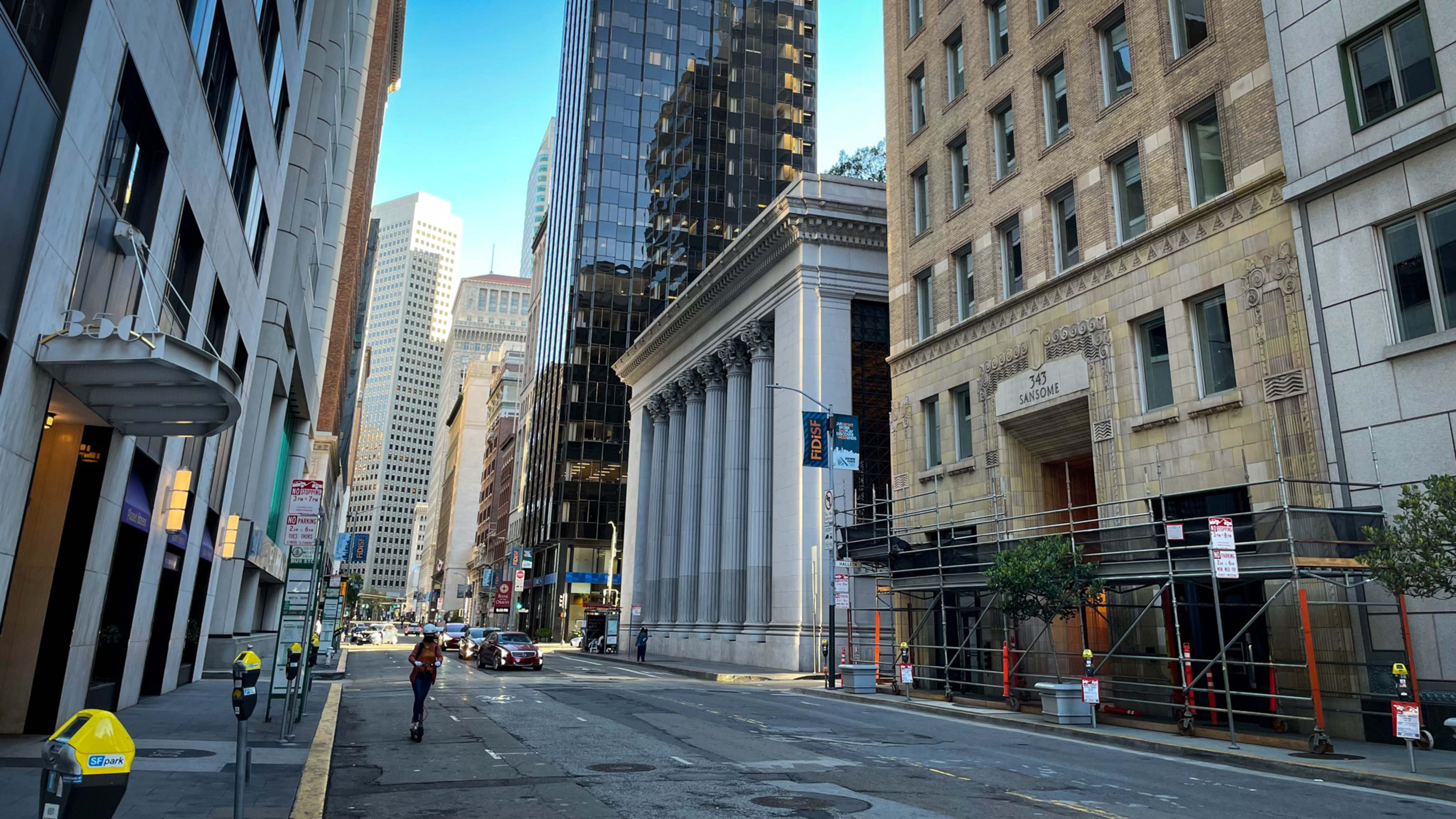A combination of strict health precautions, long pre-pandemic commutes and a tight job market have delayed a return to offices in San Francisco, leaving downtown merchants hanging in the balance.
San Francisco has the lowest rates of in-person work of any U.S. metro area, with 21% of office workers swiping into office buildings last week according to Kastle Systems, a building access firm. That number has barely budged as pandemic milestones have come and gone, barely exceeding 20% in June even with COVID-19 cases at their lowest point since March 2020 and a large majority of San Franciscans vaccinated. In other major metros like Washington D.C. and New York, office occupancy was closer to one-third.
That’s despite the fact that San Francisco has embraced vaccines—the city government and major companies including Salesforce and Airbnb have made them mandatory for employees—and kept Covid rates lower than any other major city.
San Francisco’s strict masking rules also go beyond what’s required by California health authorities and most jurisdictions nationally, notably mandating that masks be worn indoors—including in offices large and small—regardless of vaccination status.
“It means that when you’re in the office, you’re not going back to the same kind of free flowing interactions you had,” said Alec Levenson, a senior research scientist at USC Marshall School of Business’ Center for Effective Organizations. “Companies are not going to stay remote forever, but it’s a really hard set of choices that people face.”
Local officials have avoided top-down enforcement of mask mandates, instead placing the onus on businesses to ensure that patrons or employees are abiding by the rules. In closed office environments where everyone is vaccinated, lax attitudes toward the indoor mask mandate appear to be common.
“The health authorities might say you need to [wear a mask at work], but you walk into these offices and people are not complying 100%. They’re just not,” noted Levenson.
Mayor London Breed herself highlighted the dilemma posed by strict rules that seem illogical or unenforceable when she was spotted maskless at the Black Cat jazz club, in violation of the requirement that masks be worn indoors except when actively eating and drinking. “Make sure you are vaccinated because of the requirements, but don’t feel as though you have to be micro-managed about mask wearing,” the Mayor said Friday, all but inviting San Franciscans to ignore the rules.
Bay Area health officers said at a joint press conference in August that they may revise mask guidelines if COVID cases and hospitalizations fall back to where they were in mid-June. Los Angeles, Santa Clara and other Bay Area counties have similar office-masking requirements.
“We continue to look at the data and we’re committed to removing restrictions as soon as we can in coordination with the other Bay Area counties,” the S.F. Department of Public Health said in a statement.
That’s small comfort for small business owners in and around the Financial District, where hopes are fading for a quick return to anything resembling pre-pandemic business.
“We had a lot of dotcom, financial, definitely a lot of lawyers, accounting firms, a lot of commercial real estate and insurance brokers, people in financial securities,” said Will Herrera, who manages the storied Old Ship Saloon on Battery Street. He estimates the saloon is running at about 10% of its prior operations, having seen a fleeting uptick over the summer before the Delta variant led health officials to reinstate mask mandates.
“Our customer base isn’t making independent decisions; their decisions are being made by their executives or administrators,” Herrera added. “It’s much easier for them to redirect than to have [employees] actually come in and run the risk of an outbreak. That’s not something that any company wants to inherit right now.”
Researchers say there are factors besides the mask mandate hampering in-person office work in San Francisco: long commutes into downtown, employee preferences, and a tech-forward culture that adjusted easily to tools like Zoom and Slack.
“Commutes in the Bay Area were already some of the longest in the country, so telecommutes were already pretty common,” said Gwen Litvak, senior vice president of public policy at the Bay Area Council. “There’s a sense that it’s still a pretty competitive job market, and for the most part things seem to be working, so there’s a hesitation to call folks back and upset the apple cart.”
Among major San Francisco employers, many if not most have embraced vaccine mandates. The city of San Francisco instituted a vaccine requirement in June; likewise, large private companies like Salesforce, LinkedIn and Airbnb have made vaccines mandatory for anyone coming into the office.
None contacted by Here/Say were requiring employees to work in-person, however. Surveys of tech workers show that many prefer remote work, and some have even urged their employers to continue offering flexible work options.
